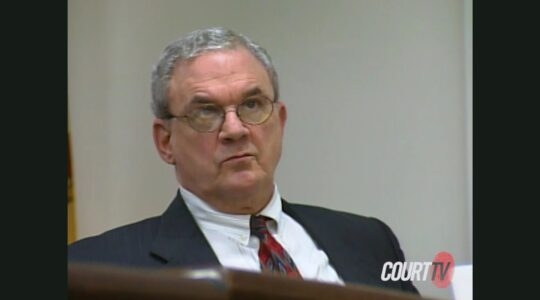MOSCOW, Aug. 4 (JTA) — In a turnabout, leaders of Russia’s major religions now agree that a controversial bill on freedom of religion recently vetoed by President Boris Yeltsin needs to be amended. At a meeting last week with Yeltsin’s deputy chief of staff, Maxim Boiko, representatives of the Russian Orthodox Church, Islam, Judaism and Buddhism agreed that the rejected bill needs to be changed so that it will not discriminate and violate the Russian Constitution. The much-criticized preamble to the bill, which contained the list of the four “traditional” faiths that would be the only religions granted full rights, might be removed or at least re-worded, according to Russia’s chief rabbi, Adolph Shayevich. Religious leaders also agreed to lift the requirement that all “non-traditional” faiths prove that they have officially existed in Russia for at least 15 years — a provision that could outlaw such faiths as Catholicism and evangelical Christianity, since they were unable to obtain official recognition in the Soviet Union. The Law on Freedom of Conscience and Religious Association, overwhelmingly approved by both house of the Russian Parliament earlier this summer, was aimed at stemming the flood of cults and foreign missionaries that have swept across Russia since the breakup of the Soviet Union. Critics of the law, including the U.S. Senate, the pope and human rights activists, urged Yeltsin to veto the bill, calling it discriminatory and undemocratic. Although Shayevich had supported the legislation, several Jewish groups — in Russia and abroad — had opposed it. The leaders of the Lubavitch and the Reform movements in Russia — both of which could have been affected by the legislation, were among those who welcomed Yeltsin’s veto. Yeltsin vetoed the bill, claiming that it “infringes on the constitutional rights and freedoms” of the Russian people. Leaders of Russian Orthodoxy, Islam and Buddhism openly had criticized Yeltsin’s decision to return the legislation to the Parliament, as had Shayevich, who said the bill should have been approved since it would have allowed traditional religions to operate. Experts say both houses of the Russian Parliament will likely override the presidential veto by the required two-thirds majority. If that occurs, Yeltsin could take the matter to Russia’s constitutional court. The Parliament is in recess until September.
Heads of Russia’s largest faiths shift stance on controversial law
Advertisement





